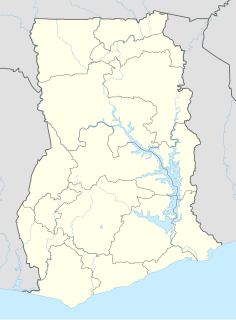Medina in Saudi Arabia is the second holiest city in Islam.
Nena is a given name, nickname and sometimes a surname. It is an English and Spanish feminine given name that is a diminutive form of Antonina and Giannina and thus an alternate form of Nina used in United States, most of Canada, Mexico, Guatemala, Honduras, Nicaragua, El Salvador, Costa Rica, Western Panama, Cuba, Dominican Republic, Colombia, Venezuela, Guyana, Ecuador, Peru, Chile, Bolivia, Argentina, Uruguay, Paraguay, Falkland Islands, Australia, New Zealand, Papua New Guinea, Philippines, Peninsular Malaysia, Singapore, India, Pakistan, Spain, England, Wales, Scotland, Northern Ireland, Republic of Ireland, Guyana, Liberia, Sierra Leone, Ghana, Namibia, South Africa, Botswana, Zimbabwe, Zambia, Malawi, Tanzania, Uganda, Kenya, Sudan, South Sudan, Ethiopia, Cameroon and Nigeria. It is also an Afroasiatic feminine given name used throughout Africa and a South Slavic feminine short form of Nevenka and Nevena used in Slovenia as a given name and in other South Slavic countries as a nickname. People bearing it include:
São Jorge, Portuguese for Saint George, may refer to the following places:

Elmina Castle was erected by the Portuguese in 1482 as Castelo de São Jorge da Mina, also known as Castelo da Mina or simply Mina, in present-day Elmina, Ghana. It was the first trading post built on the Gulf of Guinea, and the oldest European building in existence south of the Sahara. First established as a trade settlement, the castle later became one of the most important stops on the route of the Atlantic slave trade. The Dutch seized the fort from the Portuguese in 1637, after an unsuccessful attempt to the same extent in 1596, and took over all of the Portuguese Gold Coast in 1642. The slave trade continued under the Dutch until 1814. In 1872, the Dutch Gold Coast, including the fort, became a possession of Great Britain.

Elmina, also known as Edina by the local Fante, is a town and the capital of the Komenda/Edina/Eguafo/Abirem District on the south coast of Ghana in the Central Region, situated on a bay on the Atlantic Ocean, 12 kilometres west of Cape Coast. Elmina was the first European settlement in West Africa and it has a population of 33,576 people.
João de Santarém was a Portuguese explorer who discovered São Tomé, Annobón and Príncipe. Together with Pêro Escobar, he also encountered the town of Sassandra in the Ivory Coast in 1471 and in 1472 explored the African land from Ghana up to the Niger Delta. From 1484 he was captain of Alcatrazes in Cape Verde.

The Dutch Gold Coast or Dutch Guinea, officially Dutch possessions on the Coast of Guinea was a portion of contemporary Ghana that was gradually colonized by the Dutch, beginning in 1612. The Dutch began trading in the area around 1598, joining the Portuguese which had a trading post there since the late 1400s. Eventually, the Dutch Gold Coast became the most important Dutch colony in West Africa after Fort Elmina was captured from the Portuguese in 1637, but fell into disarray after the abolition of the slave trade in the early 19th century. On 6 April 1872, the Dutch Gold Coast was, in accordance with the Anglo-Dutch Treaties of 1870–71, ceded to the United Kingdom.

The Portuguese Gold Coast was a Portuguese colony on the West African Gold Coast on the Gulf of Guinea.
(Al-) Minya may refer to:
Fernão Gomes was a Portuguese merchant and explorer from Lisbon, possibly the son of Tristão Gomes de Brito.
Kim Tyrone Grant is a former professional footballer who has been involved in top level professional football for over 24 years, playing in Europe and Asia.
St George's Castle, or variants, may refer to:

The Battle of Elmina was a military engagement of the Dutch-Portuguese War, fought near the castle of São Jorge da Mina in the Portuguese Gold Coast in 1625. It was fought between 1,200 soldiers of the Dutch West India Company who landed and assaulted the Portuguese garrison of the castle. The garrison was reinforced by 200 African allies put in service of the governor Sottomayor by the local caciques.

Fort Coenraadsburg or Conraadsburg, also Fort São Tiago da Mina, is a small Portuguese chapel built in honor of Saint Jago and it is situated opposite the Elmina Castle in the Central region of Ghana, to protect Fort Elmina from attacks.

Asafo are traditional warrior groups in Akan culture, based on lineal descent. The word derives from sa, meaning war, and fo, meaning people. The traditional role of the Asafo companies was defence of the state. As the result of contact with European colonial powers on the Gold Coast, the Fante, who inhabit the coastal region, developed an especially complex version of the concept in terms of its social and political organization based on martial principles, and with elaborate traditions of visual art, including flag banners with figurative scenes, and designs alluding to historical events or proverbs.
Tourism in Ghana is regulated by the Ministry of Tourism of Ghana. This ministry is responsible for the development and promotion of tourism related activities in Ghana.
A slave fort or slave castle was a fortification designed to provide an area in which enslaved victims could be imprisoned as well as constituting a significant defendable location in the event of an outside attack. A slave fort was a militarised factory which evolved at locations where the slave trade played a significant economic role on the coast of Africa. These forts were built by organisations from nine European countries, whether by the state or chartered companies.






